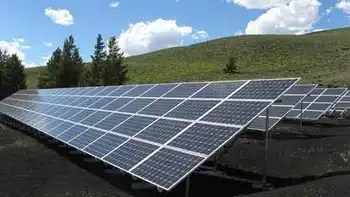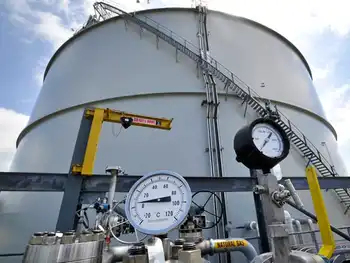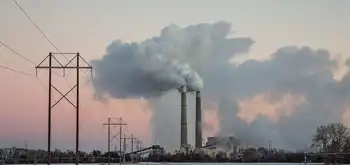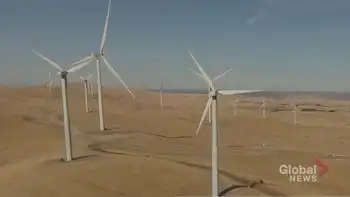Experts warn Albertans to lock in gas and electricity rates as prices set to soar

CSA Z462 Arc Flash Training - Electrical Safety Essentials
Our customized live online or in‑person group training can be delivered to your staff at your location.

- Live Online
- 6 hours Instructor-led
- Group Training Available
Alberta Energy Price Spike signals rising electricity and natural gas costs; lock in fixed rates as storage is low, demand surged in heat waves, and exports rose after Hurricane Ida, driving volatility and higher futures.
Key Points
An anticipated surge in Alberta electricity and natural gas prices, urging consumers to lock fixed rates to reduce risk.
✅ Fixed-rate gas near $3.79/GJ vs futures approaching $6/GJ
✅ Low storage after heat waves and U.S. export demand
✅ Switch providers or plans; UCA comparison tool helps
Energy economists are warning Albertans to review their gas and electricity bills and lock in a fixed rate if they haven't already done so because prices are expected to spike in the coming months.
"I have been urging anyone who will listen that every single Albertan should be on a fixed rate for this winter," University of Calgary energy economist Blake Shaffer said Monday. "And I say that for both natural gas and power."
Shaffer said people will rightly point out energy costs make up only roughly a third of their monthly bill. The rest of the costs for such things as delivery fees can't be avoided.
But, he said, "there is an energy component and it is meaningful in terms of savings."
For example, Shaffer said, when he checked last week, a consumer could sign a fixed rate gas contract for $3.79 a gigajoule and the current future price for gas is nearly $6 a gigajoule.
A typical household would use about 15 gigajoules a month, he said, so a consumer could save $30 to $45 a month for five months. For people on lower or fixed incomes, "that is a pretty significant saving."
Comparable savings can also be achieved with electricity, he said.
Shaffer said research has shown households that are least able to afford sharp increases in gas and electrical bills are less likely to pick up the phone and call their energy provider and either negotiate a lower fixed rate contract or jump to a new provider.
But, he said, it is definitely worth the time and effort, particularly as Calgary electricity bills are rising across the city. Alberta's Utilities Consumer Advocate has a handy cost comparison tool on its website that allows consumers to conduct regional price comparisons that will assist in making an informed decision.
"Folks should know that for most providers you can change back to a floating rate any time you want," Shaffer said.
Summer heat wave affected natural gas supply
Why are energy prices set to spike in Alberta, which is a major producer of natural gas?
Sophie Simmonds, managing director of the brokerage firm Anova Energy, said Alberta is now generating the majority of its power using natural gas.
The heat wave in June and July created record electrical demand. Normally, natural gas is stored in the summer for use in the winter. But this year, there was much greater gas consumption in the summer and so less was stored.
Alberta also set a new electricity usage record during a recent deep freeze, underscoring system stress.
On top of that, Alberta has been exporting much more natural gas to the United States since August and September because Hurricane Ida knocked out natural gas assets in the Gulf of Mexico.
"So what this means is we are actually going into winter with very, very low storage numbers," Simmonds said.
Why natural gas prices have surged to some of their highest levels in years
Canadians to remain among world's top energy users even as government strives for net zero
Consultant Matt Ayres said he believes rising electricity prices also are being affected by Alberta's transition from carbon-intensive fuel sources to less carbon-intensive fuel sources.
"That transition is not always smooth," said Ayres, who is also an adjunct assistant professor at the University of Calgary's School of Public Policy.
"It is my view that at least some of the price increases we are seeing on electricity comes down to difficulties imposed by that transition and also by a reduction in competition amongst generators, as well as power market overhaul debates shaping policy."
In 2019, under the leadership of Premier Jason Kenney the UCP government removed the former NDP government's rate cap on electricity at the time.
The NDP has called for the government to reinstate the cap but the UCP government has dismissed that as unsustainable and unrealistic.











